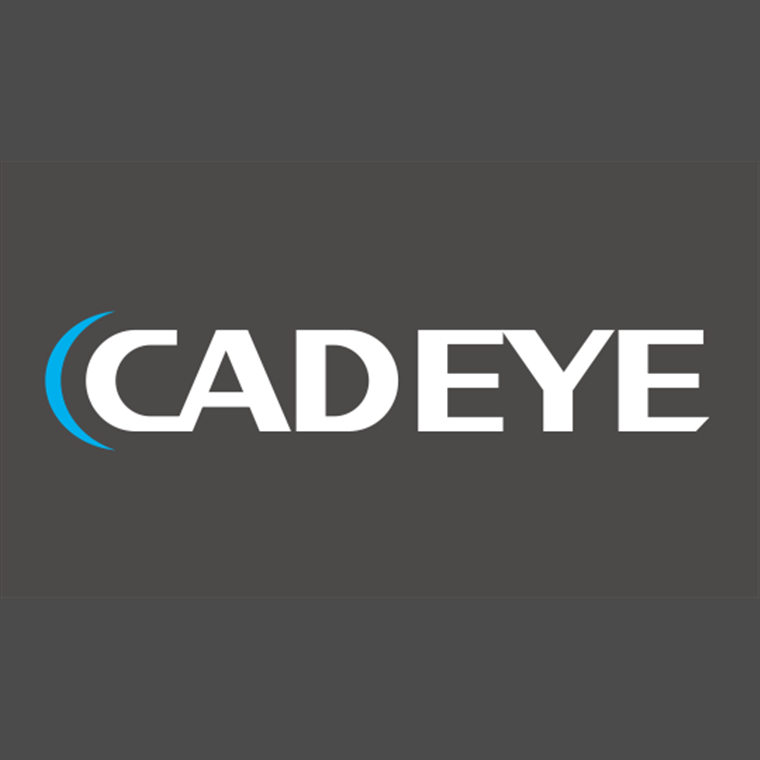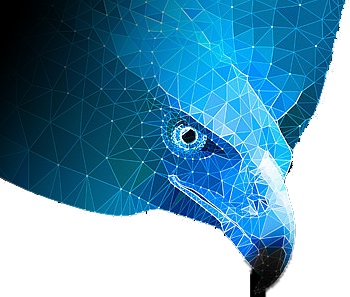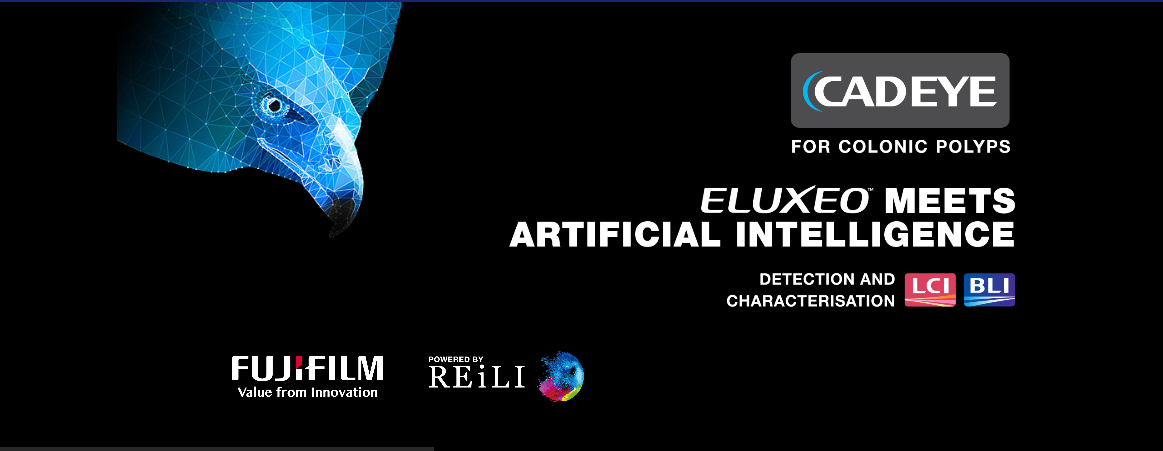Software for CADEYE
Seamless Operation
CAD EYE Detection can be activated / deactivated simply by the push on the endoscope button or directly at the processor.
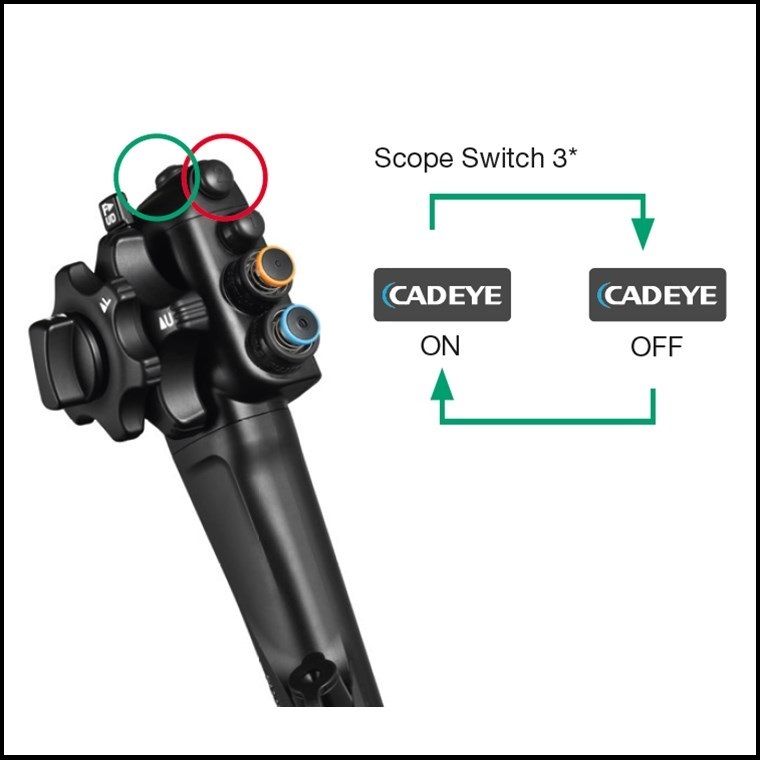
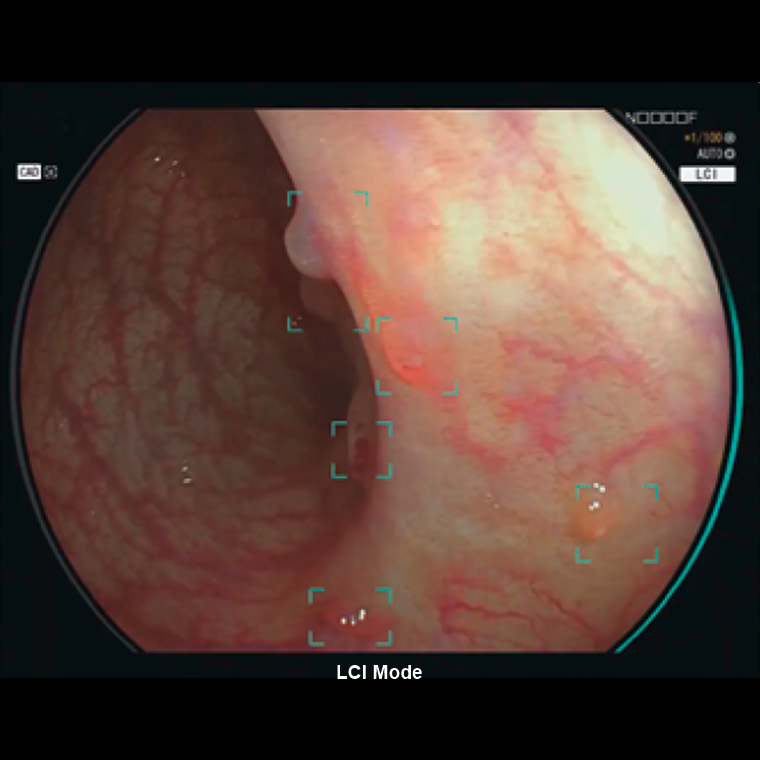
CAD EYE Detection Box
CAD EYE was developed to support real time detection of colonic polyps utilising AI technology. When a suspicious polyp is detected within the endoscopic image, a Detection Box indicates the area where the suspicious polyp has been detected accompanied by a sound signal.
Characterisation Support
Once a suspected polyp is detected by CAD EYE Detection (WLI or LCI), CAD EYE Characterisation - in combination with BLI - can support endoscopists in the diagnosis of the polyp. This function analyses in real-time and without freezing or zooming if a polyp is hyperplastic or neoplastic, which is visually indicated by the use of different colour codes in the Position Map.
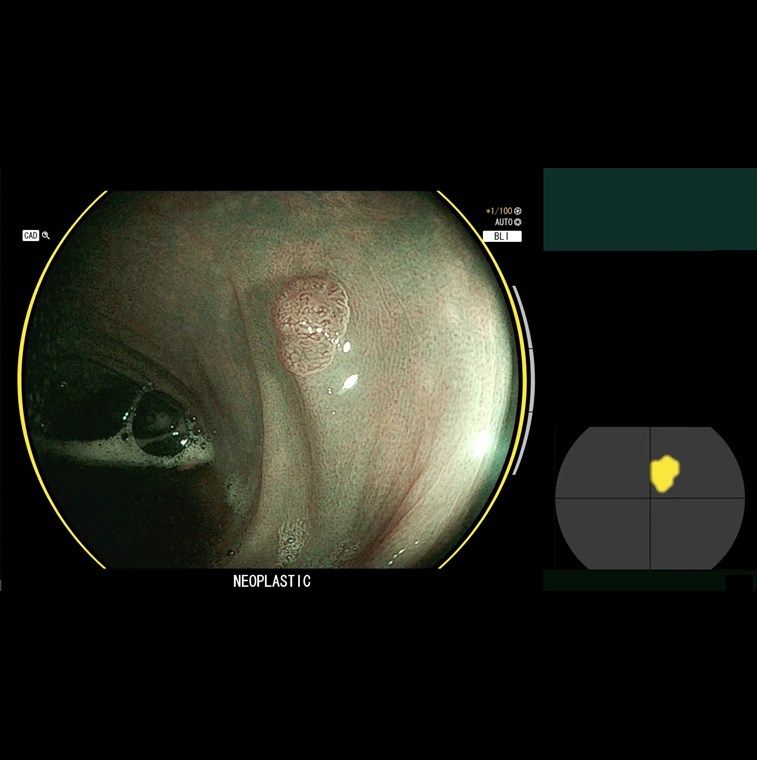
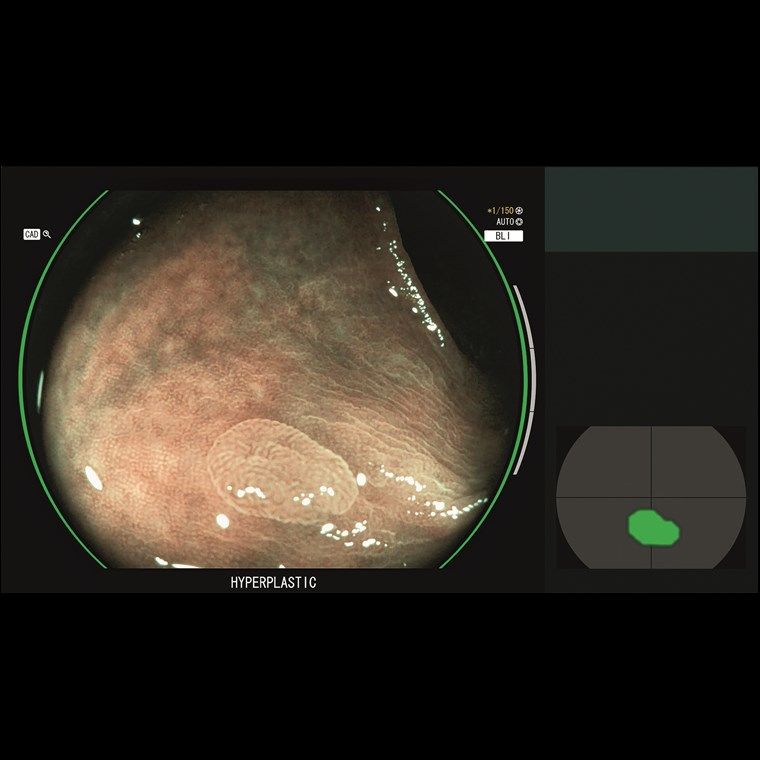
CAD EYE Detection with LCI
CAD EYE Characterisation is aimed to make procedures more efficient by increasing the accuracy of diagnosis to expert-level. GREEN: Characterisation HYPERPLASTIC; YELLOW: Characterisation NEOPLASTIC.
CAD EYE works with the expansion unit EX-1 and the CAD EYE software EW10-EC02 and can store up to 30 hours of video material in its internal memory. It can easily be controlled with the scope switch or directly at the processor.
| EX-1 Expansion Unit | |
|---|---|
| Compatible Processors | VP-7000 / EP-6000 |
| Compatible Scopes | 700 Series colonoscopes |
| Dimensions (W x H x D) | 370.0 x 99.0 x 456.6mm |
| Weight | 7.1 kg |
| Output | DVI-I x1, DVI-D x1 |
| Input | DVI-I x1 |
| Memory | 30 hours of video material, Full-HD, MP4 |
| Software EW10-EC02 | |
|---|---|
| Package Content | USB flash drive for CADEYE installment, user manual |
Brand: FujiFilm |
Code: EW10EC02V1
MPN:
APN: 9319499195502 |
Supplier Code:
Brand: FujiFilm |
Code: EW10EC02V1
MPN:
APN: 9319499195502 |
Supplier Code:
At a glance
CAD EYE‘s functionality is available with the compatible expansion unit EX-1, including software EW10-EC02 in combination with the Fujifilm ELUXEO 7000 system and 700 series colonoscopes. The internal memory allows the storage of up to 30 hours video material.